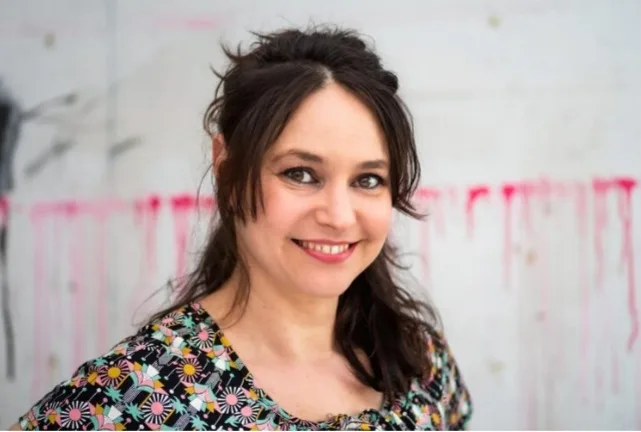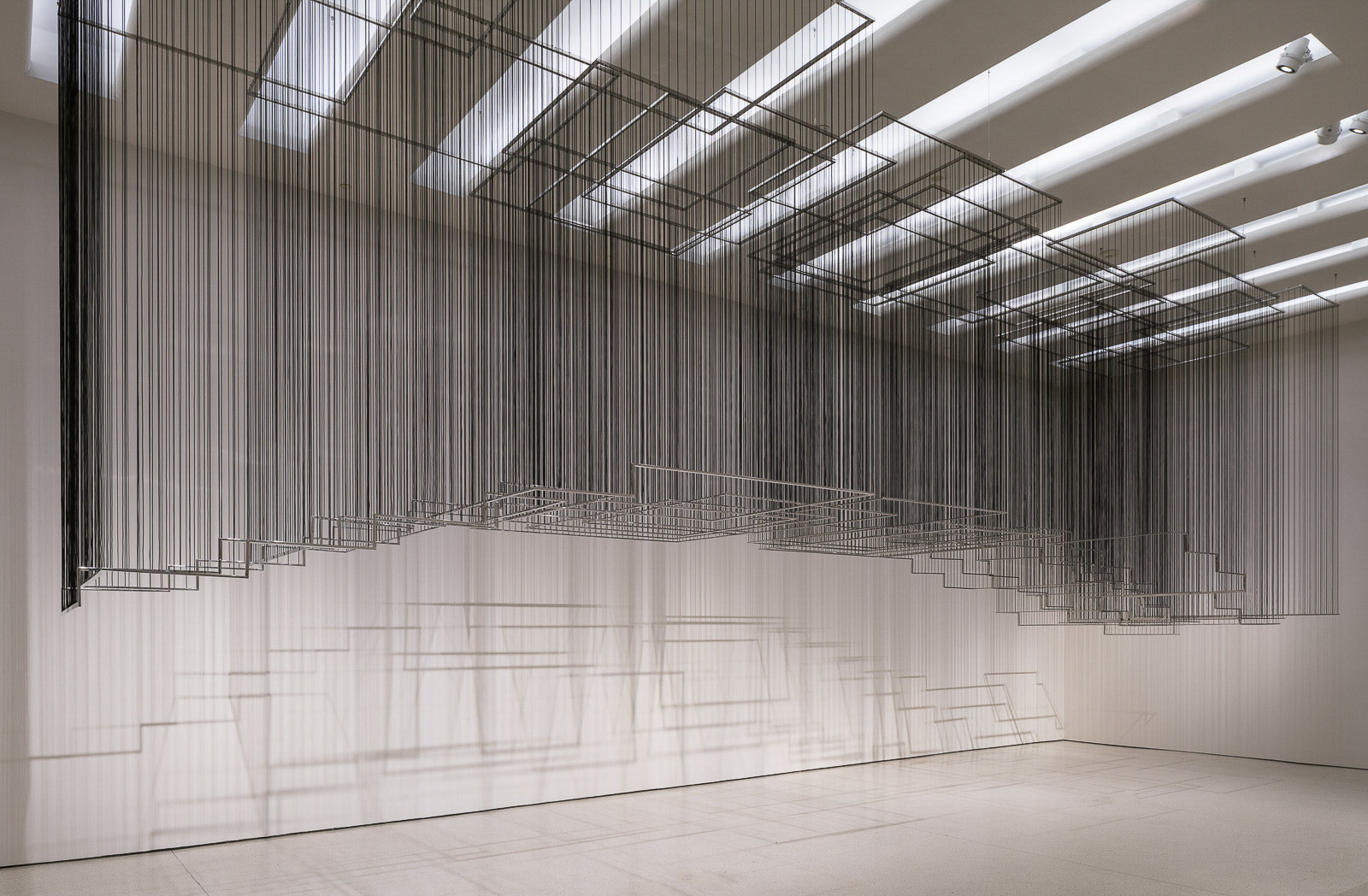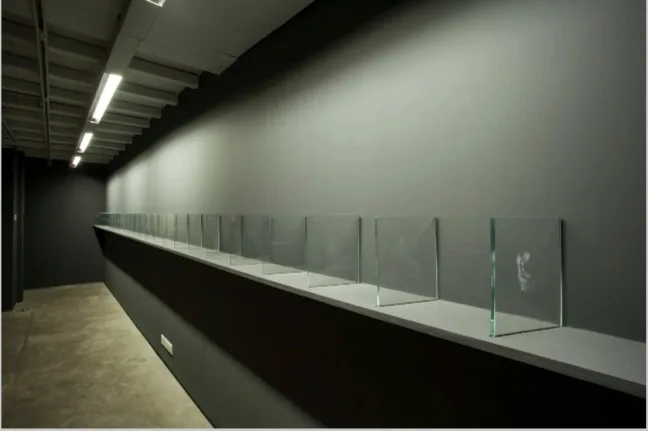Nadia Kaabi-Linke was born in Tunis, Tunisia in 1978. An installation artist best known for her conceptual art, her work has explored themes of geopolitics, immigration, and transnational identities. She studied at the Tunis Institute of Fine Arts and received a Ph.D. in philosophy of art from the Sorbonne in Paris, France. Using a variety of materials and methods, Kaabi-Linke often works in-situ on projects that relate directly to their exhibition sites. She has rendered visible the scars of domestic violence victims in London, and paint chips scraped from city walls throughout North Africa and Europe. She is currently based in Berlin, Germany.
Nadia Kaabi-Linke, Tunisia

Flying Carpets describes a limitless and unconstrained form of transportation and freedom. This is what interests Kaabi-Linke in relation to the carpets used by hawkers who sell counterfeit goods in Venice, Italy. Contrast to the freedom embodied by the flying carpet, the mobility of the street sellers is greatly restricted. Of mainly African, Arab or South Asian descent, the peddlers also use their carpets to bundle together their goods in order to flee from the authorities.

The installation expresses the hawkers’ socio-political plight. Kaabi-Linke uses a cascade of hanging thread to suspend geometric metal forms, derived from stencil outlines of the hawker’s carpets. Hovering in space like a floating cage, the work takes the shape of a bridge, Il Ponte del Sepolcro in Venice, where Kaabi-Linke spent eight days documenting the activities of the street sellers. It floats in space like a floating cage. The piece emphasises a daily sensation of confinement felt by the hawkers as they covertly ‘move’ from place to place with beauty and fragility.

When Kaabi-Linke began Impunities London she was already researching human skin and scars brought on by acts of domestic violence. She worked with a group of anonymous volunteers in Wandsworth, London for several months and used forensic techniques. She was looking for a technique that connected with the subject matter. Kaabi-Linke believes that the scars function on a very personal yet also global level, serving leftovers of invisible crimes that happen every day, everywhere, and in every socioeconomic class.
The artist held her first solo show in Tunis in 2009 and the subsequent solo show in Berlin in 2010. She also did the Mosaic Rooms of Earl’s Court in London, England. Kaabi-Linke received the 2009 Alexandria Biennale’s Jury Prize. Her work has been collected by the Museum of Modern Art, the Dallas Museum of Art Burger Collection.

